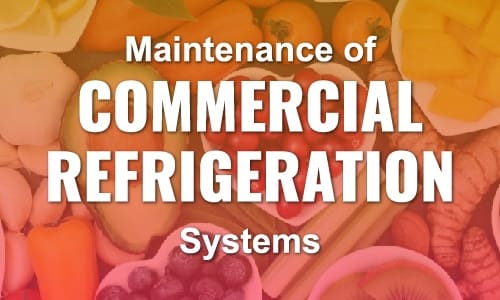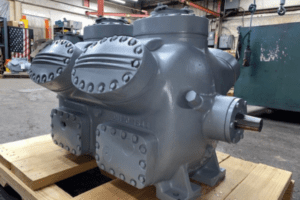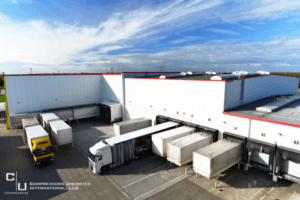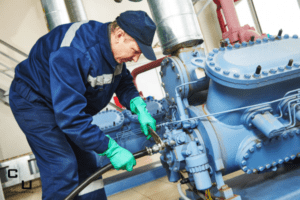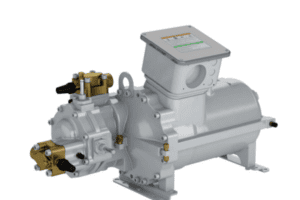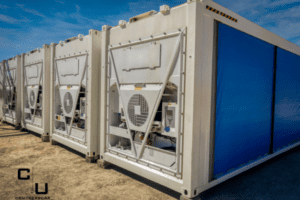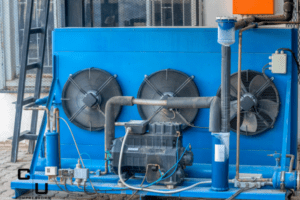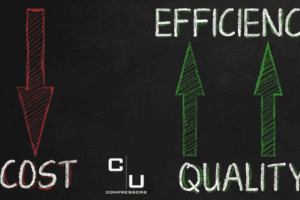When it comes to the efficiency, reliability, and service life of commercial refrigeration systems, regular preventive maintenance is a critical factor. Improper or insufficient maintenance typically leads to higher energy bills, premature system failure followed by costly repairs, and revenue losses due to food spoilage. Not to mention that commercial refrigeration equipment can fail at the most inopportune times, such as during busy periods, at night, and on weekends.
To help business professionals make the most of their systems, we’ve put together a succinct guide that focuses on the most important aspects of maintaining refrigeration equipment in food service businesses, supermarkets, warehouses, and other facilities that require medium- and low-temperature refrigeration conditions.
Routine Maintenance: What Does It Mean?
Routine maintenance on commercial refrigeration systems involves more than just checking different components every few months. Because these systems run continuously to maintain the desired temperatures, they require regular inspections, evaluations, cleaning, adjustments, and replacement of different components. Furthermore, periodic maintenance is recommended, however it is not necessary in order to keep your warranty valid.
When commercial refrigeration equipment is regularly checked by a professional technician, problems can be easily identified and fixed before the unit fails unexpectedly. As an example, replacing worn parts before they cause your system to shut down and checking electrical connections and components to prevent power loss are two simple tasks that any technician can perform in order to keep your unit in good working order.
As well, regularly cleaning system parts and components can prevent food contamination and excessive wear. Cleaning condenser and evaporator coils, for instance, will reduce the load on the compressor and minimize the risk of failure.
During maintenance operations, technicians need to comply with the inspection tasks, performance tests, component evaluations, measurements, and corrective actions recommended by OEMs for mechanical, electrical, and control systems. When special operating circumstances require additional attention (e.g. refrigeration systems that utilize carbon dioxide, ammonia, or flammable refrigerants), technicians must use the checklists and instructions provided by OEMs.
Routine Maintenance Activities
Facility owners and managers are responsible for the maintenance of their commercial refrigeration systems. Furthermore, they shall enlist the services of appropriately certified and licensed technicians, who are able to implement adequate commercial refrigeration maintenance programs and perform the necessary repairs.
During maintenance operations, a commercial refrigeration technician should:
- Thoroughly inspect all the parts and components of refrigeration equipment in order to identify any non-compliance with manufacturer’s instructions, warranty requirements, health and safety standards, building codes, and environmental regulations;
- Record test results and observations on any faults that may lead to accelerated wear, poor performance, increased energy consumption, and/or health and safety issues;
- Recommend relevant corrective actions to fix the faults identified and improve the performance, efficiency, safety, and durability of your refrigeration system.
Benefits of Periodic Refrigeration Maintenance
Here is a quick look at how a preventive maintenance program can benefit your facility.
- Generate cost savings – Regular preventive maintenance can find different issues that not only compromise your system’s efficiency—which will have an adverse effect on energy consumption—but also lead to costly emergency repairs.
- Prolong the life of your equipment – Failure to maintain commercial refrigeration systems regularly will cause your units to work harder and even trigger short cycling. This in turn will lead to excessive wear and tear, which may result in premature system failure.
- Improve the quality and safety of products – The products usually found in refrigeration units are highly vulnerable to microorganisms that thrive in moist environments. Regular maintenance and cleaning will prevent bacterial and fungal proliferation, and ensure the safety of your refrigeration equipment year-round.
To maximize the effectiveness of preventive refrigeration maintenance, commercial refrigeration equipment must be sized correctly for each application and installed according to the manufacturer’s instructions and all applicable industry requirements. If you’re looking for a commercial refrigeration maintenance program, it’s critical that you consult a qualified refrigeration technician in order to put together a customized maintenance plan for your facility.

